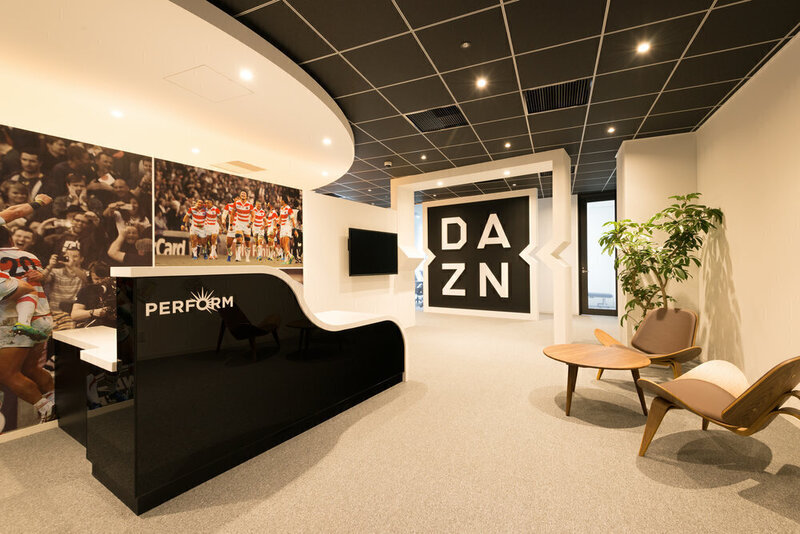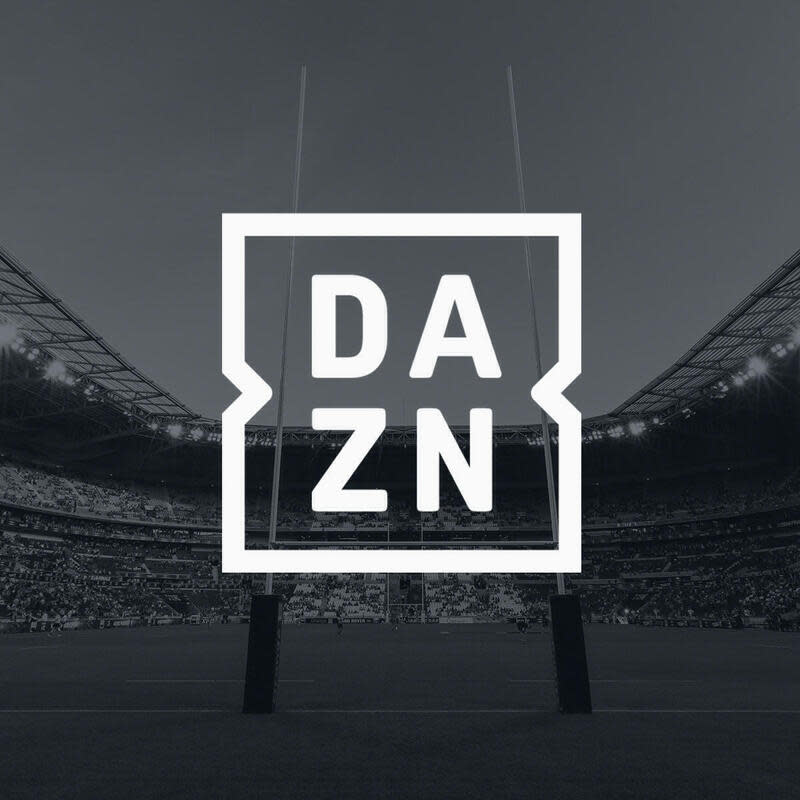Sports just don’t make good reruns. Which is why sports fans can’t miss a moment of a live game. Enter DAZN, the world’s first dedicated sports streaming service that offers fans unlimited access to live and on-demand sports from practically any internet-connected device. From smartphones and desktops to game consoles, DAZN connects your screen with all the matches on your must-watch list.
DAZN (pronounced “Da Zone”) first launched in 2016 in Austria, Germany, Japan, and Switzerland, followed closely by Canada in 2017, and the United States and Italy in 2018. This year, DAZN expects to welcome devices of all shapes and sizes streaming from Spain and Brazil. As DAZN expands their reach, they’re emerging among a crowd of streaming services—what makes them different? In short, an obsession with keeping sports fans connected—and the technology that powers their service.
DAZN developers are as distributed as the software they build. They hired their first developer at the start of 2017. Now, they have a combination of 380 internal and third-party developers at offices in the United States, London, Poland, and Slovakia, as well as a newly opened Development Center in Amsterdam. In 2018, a total of 110,000 commits were made by the development team, peaking at about 3,000 in a single week.

From the start, DAZN needed a way to coordinate its developer talent and keep them focused on building better software that scaled across dozens of platforms and millions of users. They also needed to continuously test and integrate the service through different time zones and locales. In March 2018, DAZN switched to GitHub Enterprise Cloud, empowering its developers to collaborate seamlessly across teams and projects—which was and continues to be vital to its success.
As the Architecture Director for DAZN Group, Matthew Seaborn oversees the technical implementation on the developer side, ensuring everything comes together smoothly. His primary goal? Reliability and stability. “GitHub has an excellent reputation,” he said, “with very high numbers in reliability.”
GitHub’s impressive infrastructure allowed DAZN to scale as any fast-growing enterprise would want to—without sacrificing performance or resilience. He explains that before GitHub, “the BitBucket instance we had was on-premise, requiring physical servers, storage, and in-house staff. Going cloud on GitHub has certainly saved the support staff time, and the servers can be repurposed.”

GitHub has also allowed DAZN to reduce the amount of time developers spend on infrastructure and automate an efficient, low-maintenance onboarding process: once you’re in, you’re automatically added to the right teams. “The way we’ve contributed to GitHub certainly requires much lower maintenance than BitBucket,” says Seaborn.
Everyone from development testers and site reliability teams teams to DevOps engineers and technical documentation writers leverage GitHub at DAZN. “GitHub is integrated and everything is very handy,” Seaborn explains, “we use it for everything.”
“One of the drivers of GitHub is developer familiarity. You know that anyone you hire will know GitHub.”
And for third parties working on their behalf, things are just simpler and more streamlined with projects and documentation together in repositories and wikis. “Instead of doing the whole escrow agreement, we direct them to a few documented repositories. It makes life a lot easier,” says Seaborn.
As they moved their projects to GitHub, DAZN used token scanning to conduct a security sweep, allowing them to remove fraudulent credentials and lock down their code. They also used required two-factor authentication and SAML with their active directory to authenticate and verify users. For any security features that GitHub didn’t initially have, DAZN implemented them using the GitHub API. “We implemented Azure-based authentication, so we can activate and deactivate users securely and automatically,” explained Seaborn. Instead of going through thousands of different services and shutting everyone down for activations and deactivations, DAZN maintains access controls from a single location.

A strong proponent of continuous integration, DAZN also uses the GitHub API to integrate collaboration tools like Jira and Confluence. With Jira, they can link commits and tags to releases and tickets. And all bill processes have webhooks that monitor irregular activities and unusual commits. “Both processes are trawling the API to make sure that nothing that isn’t allowed to be public, is public.” Seaborn explained, “We’ve used it a lot to tighten security and meet our requirements.”
Looking forward, GitHub’s flexible integration with other tools will remain pivotal as the team looks to implement more services into its operations. The platform will continue to streamline DAZN’s way of working, making scaling and collaborating quick, efficient processes—an increasingly important benefit as the team grows.
Since GitHub is such a go-to for the open-source developer community, there’s been a minimal learning curve. As DAZN’s Head of Software Development Simon Coutts explains, “GitHub has allowed us to build out our services at speed and in a methodical way, on a platform which 99% of our developers are familiar with from either personal development projects or previous roles. Additionally, the agility and flexibility of GitHub’s ecosystem—for example Marketplace—allows our teams to use solutions they’re familiar with to improve their workflows.”

As Seaborn explained, “one of the drivers with GitHub is developer familiarity. You know that anyone you hire will know GitHub. That’s just the way it is.” In fact, it’s become standard for the hiring team to ask for GitHub portfolios prior to interviews, and candidates will often undertake coding challenges submitted through GitHub as part of their application process.
Once hired, the symbiotic relationship continues. Since DAZN allows developers to use their personal accounts, which they integrate with their active directory for permissions, the developers can build on their portfolios every time they contribute code. “I think it’s the best of both worlds,” said Seaborn, “Developers increase their profile and look a lot better to their peers, but we don’t have to sacrifice data security.”
DAZN is making huge strides in a streaming industry crowded with heavy hitters, and GitHub has been able to support its need to build quality software fast, expand the team quickly, and collaborate across the globe. Seaborn explained that by “encouraging us to test beta features and allowing us to help drive the roadmap forward,” GitHub has helped DAZN successfully become the world’s first dedicated live sports streaming service. And as DAZN expands into other countries with more complex offerings, GitHub will remain integral to its development.
Seaborn added that the support and engagement from GitHub is unparalleled: “I don’t think I’ve been involved with any platform with a team that’s been quite so open and willing to take suggestions. That’s been refreshing.”




